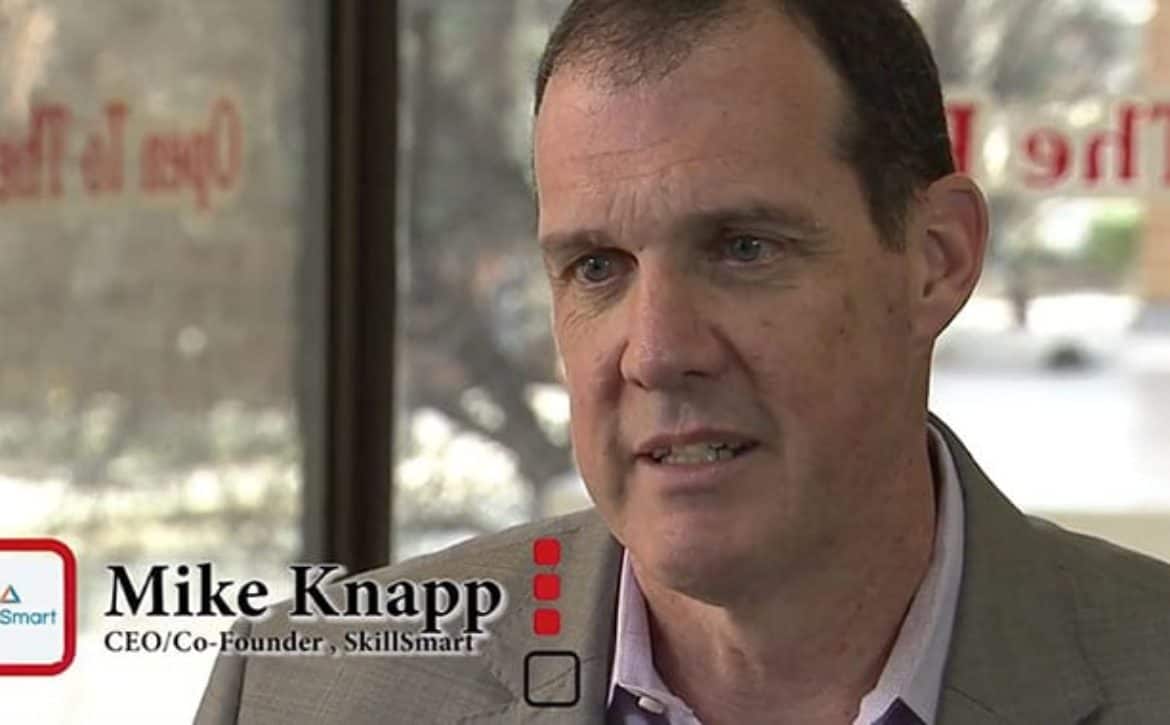 Three Questions With Ryan Craig, Jason Green, and Jason Palmer. Interviews conducted and compiled by Susanna Williams of Innovate+Educate. Edited for length.
Three Questions With Ryan Craig, Jason Green, and Jason Palmer. Interviews conducted and compiled by Susanna Williams of Innovate+Educate. Edited for length.
1. How do you see work changing?
People are going to have more different jobs and careers than ever before.
Jason Green, Co-Founder of SkillSmart:
This is part of the evolution of work. We have to understand the regularity with which people change jobs- as many as 16 times over the course of their lives now. Jobs are much less defined- instead of rigid jobs you could go to school for, we’re seeing all sorts of new jobs that use skills in new combinations.
Jason Palmer:
People are getting much smarter about figuring out what skills and credentials they need that will ladder them up their career path, but it’s still a complicated world out there and people have to self-navigate. We’re seeing more companies popping up to reduce friction and help people get the credentials they need. It’s really exciting as an investor, because it’s messy out there- and innovation thrives on building new structures in the messiness.
Jason Green:
Right, but there’s still an asymmetry of information. The employers hold all the information. Skills based hiring is a more transparent process that’s helping to democratize hiring, but that means employers also have to become more engaged.
Jason Palmer:
Someone recently said that technology jobs are the blue collar jobs of the 21st century, and I agree with the general point. You can become technology literate and get yourself a middle class job much faster than you can get a college degree. All jobs are becoming technology enabled- after all, Uber drivers need to use technology to pick up riders- and tech really is driving almost everything.
Particularly for entry level jobs. Whereas a decade ago those might have been more freewheeling and unstructured, today they are much more mediated through software like Salesforce. And that is a talent supply issue that traditional universities haven’t yet caught up to and don’t particularly seem interested in getting involved in.
The real challenge is that most employers have given up on the notion that new college graduates will have experience with that platform and have imposed experience requirements on jobs that used to be entry level. It is a fact that entry level sales reps probably don’t require the four years of the developmental education that college requires.
Mission U is a one year bachelor’s alternative. It’s the first degree that’s explicit about being a replacement degree. There is no tuition. It’s an income share agreement– 15% of your income for the first three years of work. A good number of their first cohort were enrolled in elite universities and left after their first year to enroll in Mission U.
A decade ago, you’d get a lot of reasons for why students enrolled in college. It used to be about half were focused on getting a job afterward. Now it’s north of 90%. They’re very focused on that first job and faster and more efficient pathways to that first job are going to see enormous growth in the next few years.
None of us want less education in aggregate or per capita. What’s important is that colleges and universities develop very clear secondary and tertiary pathways. It can’t just be about the four-year or two-year degree.
Jason Green:
We have to acknowledge that people engage in skill development in places that are outside traditional educational institutions and we have to find a way to quantify that skill attainment, regardless of where or how those skills were learned.
Ryan Craig:
The real question is which colleges and universities will be able to make that leap away from the four year bundle to a faster and less expensive pathway. The key to that change is the connection to the employer. Any college can change their curriculum, but where I’m struggling is with the question of employer connectivity. If you see the level of connectivity that many of these last-mile intermediaries offer, at a minimum they’re getting direct input from employers, which is anathema to traditional faculty. Some are co-locating, some intermediaries are hiring the student directly and not charging any tuition. I think lots of colleges will try to do it but I don’t know how many will be successful.
Jason Green:
Workforce development is no longer limited to job training programs. All programs are going to have to be more accountable and engaged with industry. Providing a relevant curriculum will lead to having engaged learners, better persistence, completion and, importantly, attainment of the skills needed for employment.
2. What are the biggest challenges facing employers in hiring?
Jason Green:
Employers are starting to deal with their over-reliance on technologies they no longer have confidence in- job descriptions and resumes. Job descriptions haven’t changed all that much in hundreds of years, even as work has. And resumes are a limited two-dimensional view of a three-dimensional person who may or may not be a fit for jobs that are increasingly four or five or six dimensional. We’ve used degrees as proxies for skills, but we’re getting to a point where that’s no longer satisfying our talent identification needs.
Ryan Craig:
[University Ventures] spends as much time with employers as we do with higher ed. The top of the funnel is broken, specifically at the intake. Filtering overweights technical skills because those are easy to identify, but jobs are more than technical skills.
Jason Green:
Absolutely. The current system is based on a crude filter.
The ease of the application process is actually becoming a hindrance to identifying a qualified candidate. These technologies have created a situation where we are getting 100 applications for every job posting.
One of the biggest shifts that we’re going to have to make is in the psyche of human resource professionals. They’ve held on to a volume mindset as a metric of success, but the problem is not about getting more applications, it’s about finding the right person for the job.
Ryan Craig:
We’re starting to see the emergence around the world of microassessments assessing cognitive skills that are given at the outset of the hiring process which will then determine whose applications are seen by a hiring manager. These are proliferating everywhere but the US because of an adverse regulatory environment fostered by the EEOC.
If you actually do shift from the current pedigree and degree based hiring to microassessment as your first filter, you increase diversity a lot. The problem here is that EEOC accepts on face value degree based hiring, which is actually replicating inequality, and focuses all of their enforcement activities on assessments. Instead, employers should be measured based on their hiring outcomes, and given safe harbors to experiment.
Jason Palmer:
Smaller and medium sized companies are already ignoring the rules.
Qualified is being used to qualify coders by proving you can solve coding challenges. They’re working with Andela to place sub-Saharan Africans as remote coders, as well as hundreds of American companies. Lots of people without college or even high school are training up and demonstrating that they can do these jobs.
Ryan Craig:
70% of micro-assessment usage is for clients outside the US. In a world where we are very focused on making sure US employers don’t offshore jobs, not having access to hiring tools like this is a very strong incentive to not hire American. If we could unlock this barrier, we could give millions of low income Americans meritocratic access to these jobs.
It is so important to look to other markets, like the UK. Apprenticeships, competency based hiring have almost become government policy to encourage shorter pathways to jobs.
We want American employers to invest in American workers. Revature is running free coding bootcamps. They offer guaranteed jobs, staff their students out for two years. Students often then get hired by the companies themselves, making this their first and second job.
Jason Palmer:
We’re seeing pretty serious traction in middle and even elementary school with the teaching of computer science and technology and coding. Computer science courses now count toward graduation in 23 states. There are companies offering full-course solutions in elementary schools. Rhode Island and Washington state are leaders pushing this envelope. These companies do extensive professional development with math, science, and music teachers to train them how to teach computer science. They initially looked for just math and science teachers, but now 10 – 20% of the teachers they work with are from the art and music domains.
3. What are the biggest challenges facing job training programs and the workforce development sector?
Ryan Craig:
It’s a different universe. I agree with Secretary DeVos- simply making small changes to the Higher Education Act (HEA) is not the way to go. We need to rethink our higher education system in order to solve a problem- how do we take students from the point they finish K-12 and move them into a good job in the growing economy? We have balkanized our system of higher education and put up on a pedestal one pathway– the degree. All of these systems would do better to work together in a more coordinated way.
We’re looking at a separate Department of Labor pool of money that is separate from the Workforce Innovation and Opportunity Act (WIOA) funds that is disconnected from the apprenticeship process. We need an integrated system that offers a much greater diversity of pathways to a good job.
Jason Green:
We certainly need a different kind of thinking- and that starts with letting go of old filters. At SkillSmart we have developed an alternative means for evaluation based on the lived and learned skills which allows employers and workforce agencies to relax their grip on traditional resume based evaluation.
Jason Palmer:
Employers need to adapt. If employers can find people who’ve held a job for two years, but don’t have a college degree, they’re worth hiring and they can be trained up with the the specialized skills they need. Small companies are popping up to onboard and run internship and apprenticeship programs.
Ryan Craig:
I agree with Peter Cappelli – employers want the perfect candidate and aren’t going to sully their hands with training. The market is coming up with solutions– we’re seeing the emergence of small private lenders who are lending on what you’re likely to earn in the future, so-called income share agreement models. This significantly reduces the risk for the students. We’re also seeing innovations in staffing models- a try before you buy kind of approach, which reduces risk for students and employers.
Jason Green:
We hear from a lot of employers who are willing to go along with the status quo even though it isn’t meeting their needs because they don’t want to take the risk of trying something new. Those of us who can see the bigger problem need to do a better job of articulating what inaction looks like, because there is a real cost to not changing the way we’re hiring and training and educating.
Learn More We are excited to see the emergence of a national conversation on the importance of using skills to build the workforce, improve hiring outcomes, and increase opportunities for success. In the past few months we have seen a focus on rebuilding America’s infrastructure, products Made In America, and helping workers rebuild their skills to increase opportunities for success in the workplace.
We are excited to see the emergence of a national conversation on the importance of using skills to build the workforce, improve hiring outcomes, and increase opportunities for success. In the past few months we have seen a focus on rebuilding America’s infrastructure, products Made In America, and helping workers rebuild their skills to increase opportunities for success in the workplace.





 SkillSmart has been selected to participate in Village Capital’s Education: US 2017 program focused on helping higher education providers, private companies and other initiatives invested in workforce development initiatives.
SkillSmart has been selected to participate in Village Capital’s Education: US 2017 program focused on helping higher education providers, private companies and other initiatives invested in workforce development initiatives.

 One of the ongoing themes of these weekly blogs is the fact that the current college system is broken.
One of the ongoing themes of these weekly blogs is the fact that the current college system is broken.


 Students majoring in Liberal Arts fields are often undervalued. Relatively speaking, these degrees do not carry the same weight as medical or engineering degrees.
Students majoring in Liberal Arts fields are often undervalued. Relatively speaking, these degrees do not carry the same weight as medical or engineering degrees.


